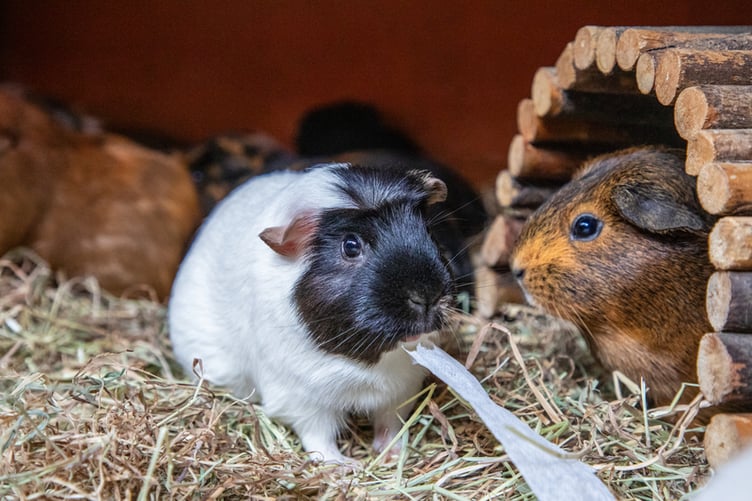Overbreeding of guinea pigs and the ongoing impact of the cost of living crisis, as well as a lack of knowledge about the species by inexperienced owners, is hitting the small creatures hard - leaving RSPCA resources at breaking point.
The latest figures from the animal charity shows there has been a 37% increase in the numbers of guinea pigs taken in by its animal centres during the first eight months of this year compared to the same period in 2022.
In all 237 guinea pigs arrived into the care of the charity up to August, which is already almost as many as were taken in during the whole of 2022. This worrying trend seems well established - with last year’s intake of 253 marking a 77% rise on the previous year, mirroring a rise in the numbers of rabbits and other small furry animals that the charity has been left to care for and rehome - including massive rises in the numbers of rats (193%) and mice (191%) over the same period.
As it aims to deal with the crisis, the RSPCA backed Guinea Pig Awareness Week (GPAW), which ran from September 25 to 29 with the aim of educating the public about the welfare needs of the small animals.
This year’s theme for GPAW was ‘Rescue and Rehome’ with the focus also on finding forever homes for the thousands of guinea pigs who are being cared for at animal centres across the country, with both RSPCA and those run by other animal welfare organisations.
Dr Jane Tyson, the RSPCA’s small animals welfare expert, said: “Pet ownership rose significantly during the pandemic and people often think that guinea pigs will make good starter pets for their children.
“But, like other small animals, they actually have complex needs and they are not easy or cheap to care for well. Owners don’t always correctly sex small animals either, so a pair can quickly spiral into double figures and beyond.”
Guinea pigs are sociable animals and owners are advised to keep two or more together. But that can lead to unwanted litters if there are unneutered males and females. Breeding can soon get out of control - and mothers can get pregnant again within hours of giving birth with pregnancies lasting only nine to 10 weeks.
Swelling the numbers in the care of the RSPCA recently were 45 guinea pigs who were signed over to the RSPCA Sussex North & Brighton Branch along with 38 rabbits. The pets were being kept in overcrowded conditions in the backyard of a property in Bognor Regis by an owner who became overwhelmed after starting with only a handful of pets. The RSPCA worked with the owner to remove around 15 more guinea pigs who were placed with an approved foster carer.
The charity’s officers always offer advice and education to owners to tackle cases of overbreeding - and expert guidance in a downloadable digital pack is being made available as part of Guinea Pig Awareness Week.
It includes advice on making sure guinea pigs are kept in a suitable environment with enough space inside their homes and enclosures to exercise and explore.
Guinea pigs should also have a range of toys, tunnels and hiding places on hand so they can exhibit their natural inquisitive behaviour.
There is a wealth of information and advice on the RSPCA website to guide existing owners and anyone who may be considering adding guinea pigs to their family.





Comments
This article has no comments yet. Be the first to leave a comment.